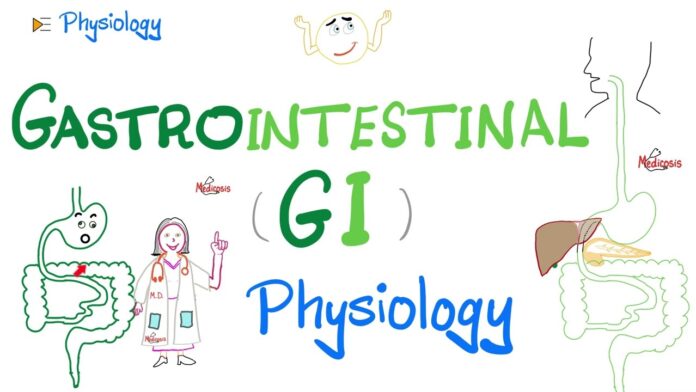The human gastrointestinal (GI) tract is a complex system responsible for the digestion and absorption of food, as well as the elimination of waste. However, disruptions in this delicate balance can lead to various conditions known as gastrointestinal disorders. These disorders range from mild discomfort to severe chronic illnesses, affecting millions of people worldwide.
In this article, we will delve into the intricacies of the GI tract and explore the common types, causes, symptoms, diagnosis, and treatment options for gastrointestinal disorders. We will also discuss ways to prevent and manage these conditions to improve overall quality of life.
Common Types of Gastrointestinal Disorders
The GI tract is composed of several organs, including the mouth, esophagus, stomach, small intestine, large intestine, rectum, and anus. Any disruption or dysfunction in these organs can lead to various gastrointestinal disorders. The most common types include:
Acid Reflux Disease

Also known as gastroesophageal reflux disease (GERD), acid reflux occurs when stomach acid flows back into the esophagus, causing heartburn and other uncomfortable symptoms.
Irritable Bowel Syndrome (IBS)

This chronic condition affects the large intestine, causing abdominal pain, bloating, and changes in bowel movements. It is thought to be triggered by stress, diet, and hormonal changes.
Inflammatory Bowel Disease (IBD)
A group of inflammatory conditions that affect the digestive tract, including Crohn’s disease and ulcerative colitis. These disorders cause chronic inflammation and damage to the lining of the intestinal wall.
Celiac Disease
An autoimmune disorder triggered by the consumption of gluten, a protein found in wheat, barley, and rye. It damages the small intestine and can lead to malabsorption of nutrients.
Peptic Ulcers
Open sores that develop in the lining of the stomach or small intestine due to a bacterial infection or long-term use of nonsteroidal anti-inflammatory drugs (NSAIDs).
Causes of Gastrointestinal Disorders
Various factors can contribute to the development of gastrointestinal disorders. These include:
Genetic Predisposition
Some individuals may have a genetic predisposition to certain gastrointestinal disorders, such as celiac disease and IBD.
Poor Diet
A diet high in processed foods, sugar, unhealthy fats, and low in fiber can disrupt the balance of gut bacteria and lead to digestive problems.
Stress
Chronic stress can cause an imbalance in gut bacteria and negatively impact the functioning of the digestive system.
Infections
Bacterial, viral, and parasitic infections can cause temporary gastrointestinal distress, but they can also lead to more severe conditions if left untreated.
Medications
Certain medications, such as antibiotics, painkillers, and antidepressants, can disrupt the balance of gut bacteria and cause gastrointestinal issues.
Symptoms of Gastrointestinal Disorders
The symptoms of gastrointestinal disorders vary depending on the specific condition. However, there are some common signs that may indicate a problem with the digestive system, including:
- Abdominal pain or cramping
- Bloating or gas
- Constipation or diarrhea
- Nausea or vomiting
- Changes in bowel habits
- Unexplained weight loss
- Blood in stool or vomit
It is essential to seek medical attention if any of these symptoms persist or become severe.
Diagnosis and Treatment Options
The diagnosis of gastrointestinal disorders involves a thorough medical history, physical examination, and various diagnostic tests. These may include blood tests, stool tests, endoscopy, imaging tests, and biopsies.
Treatment options for gastrointestinal disorders depend on the underlying cause and severity of the condition. They may include:
Medications
Medications are often prescribed to manage symptoms of gastrointestinal disorders. These may include antacids, proton pump inhibitors, laxatives, and anti-inflammatory drugs.
Dietary Changes
In some cases, making dietary changes can help alleviate symptoms of gastrointestinal disorders. These may include avoiding trigger foods, increasing fiber intake, and following a gluten-free diet for those with celiac disease.
Probiotics
Probiotics are beneficial bacteria that can help restore the balance of gut microbiota and improve digestive health.
Surgery
Surgery may be necessary for more severe cases of gastrointestinal disorders, such as Crohn’s disease, ulcerative colitis, or peptic ulcers.
Prevention of Gastrointestinal Disorders
While some risk factors for gastrointestinal disorders are beyond our control, there are steps we can take to reduce the risk of developing these conditions. Some preventive measures include:
- Eating a balanced and healthy diet rich in whole foods, fruits, and vegetables.
- Managing stress through relaxation techniques and mindfulness practices.
- Avoiding smoking and excessive alcohol consumption.
- Staying hydrated by drinking enough water throughout the day.
- Exercising regularly to maintain a healthy weight and promote good digestion.
Living with Gastrointestinal Disorders
Living with gastrointestinal disorders can be challenging, but there are ways to manage symptoms and improve quality of life. Here are some tips for living with these conditions:
- Learn about your condition and its triggers to better manage symptoms.
- Follow a healthy and balanced diet tailored to your specific needs.
- Keep track of your symptoms and seek medical advice if they worsen.
- Practice stress-management techniques to minimize flare-ups.
- Join support groups to connect with others who understand your struggles.
Conclusion
The GI tract is a vital system responsible for the digestion and absorption of nutrients essential for our overall health and well-being. When this intricate balance is disrupted, it can lead to various gastrointestinal disorders that can significantly impact our quality of life. Therefore, understanding the causes, symptoms, and treatment options for these conditions is crucial in effectively managing them. By taking preventive measures, seeking medical attention when needed, and making necessary lifestyle changes, we can alleviate symptoms and improve our digestive health. Remember, a healthy gut is the key to a healthy body.


